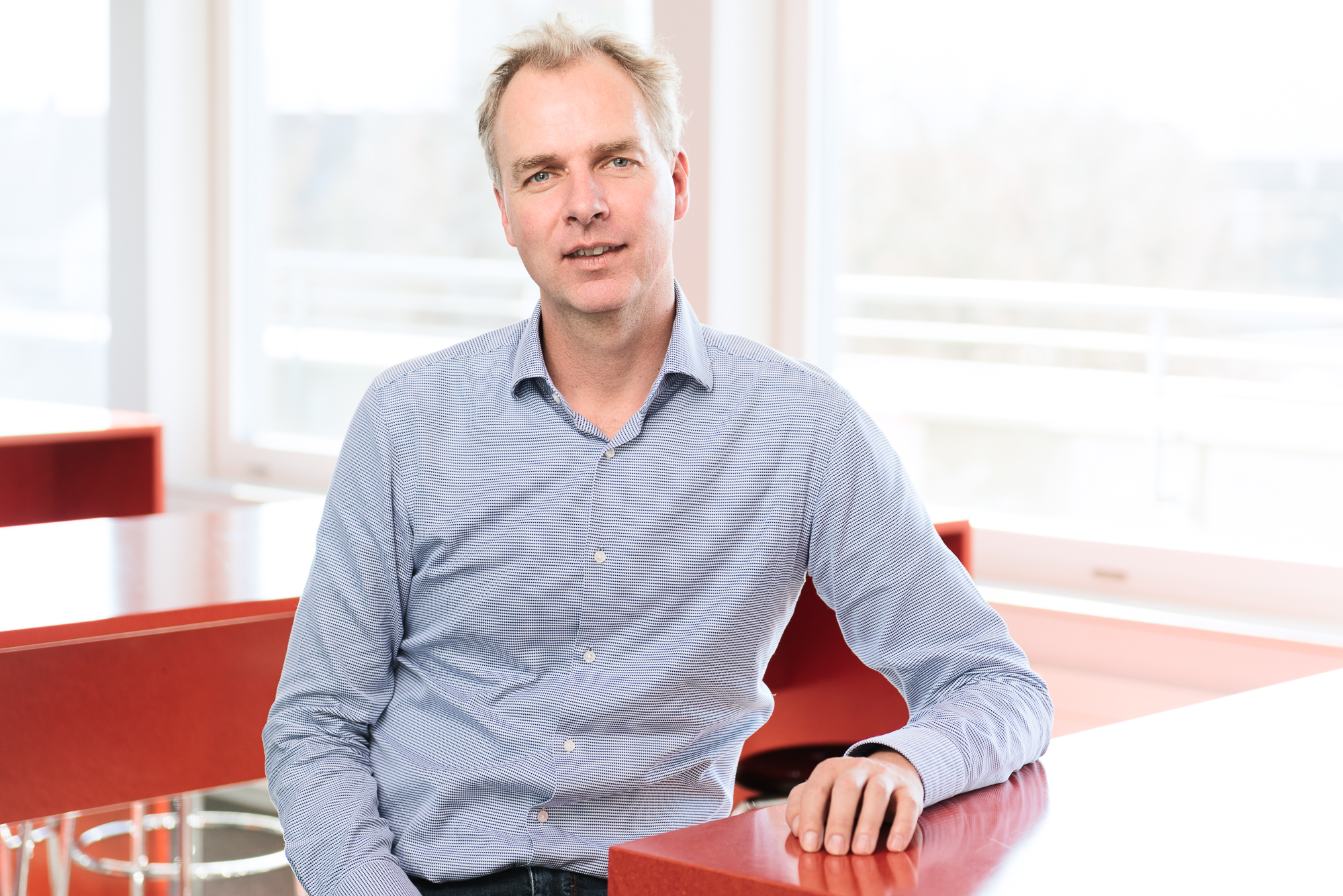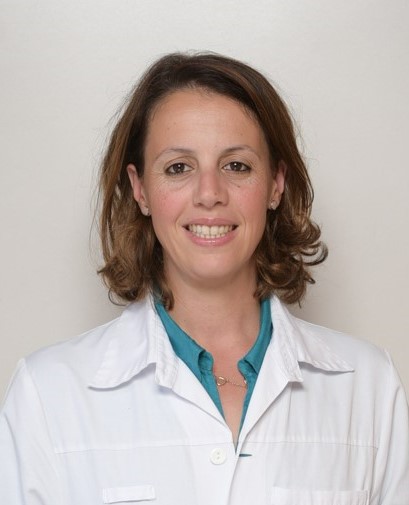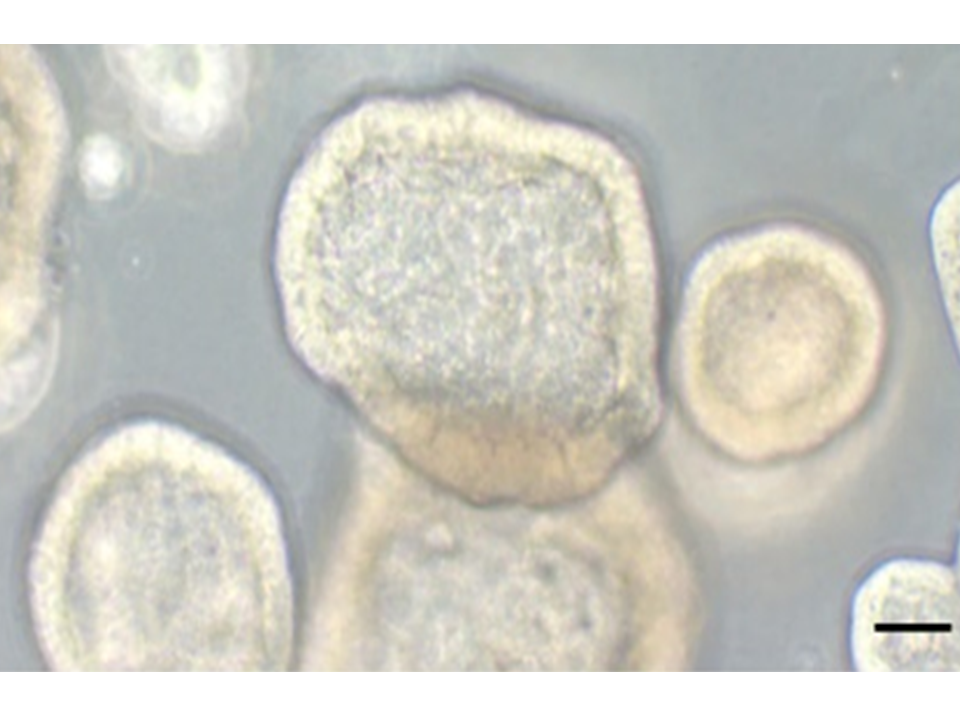Major US award for Bern and Geneva researchers
A prestigious grant from the USA goes to the biomedical scientist Sven Rottenberg, University of Bern, and the clinical scientist Intidhar Labidi-Galy, University of Geneva and University Hospital of Geneva. They received a joint grant from the "Congressionally Directed Medical Research Programs" for their project on ovarian cancer. This underlines the high quality of the collaborative research on ovarian cancer in Bern and Geneva.
The US "Congressionally Directed Medical Research Programs" (CDMRP) provide grants on behalf of the US Department of Defense (DoD) to support medical research projects in 18 biomedical programs. Each research program is focused on ending or curing a particular disease, condition or injury, and having a major impact on the quality of life of its survivors. Researchers apply for these grants in a highly competitive process. The DoD is responsible for the lifelong medical care of its employees. For this reason, its medical research programs support both basic and applied research in various areas of medicine, such as ovarian cancer research in its Ovarian Cancer Research Program. The CDMRP has existed since 1992. The total budget for 2021 amounted to around $1.5 billion.
Exceptional success for joint research on ovarian cancer
The Ovarian Cancer Research Program is the only US federal research program dedicated to this deadly disease and among the most prestigious awards for ovarian cancer. It invests in high-impact, cutting-edge research to target the most critical needs along the research development pipeline from basic to translational to clinical research, and supports innovative approaches to move the field forward to their vision of eliminating ovarian cancer. Besides the two awards for Bern and Geneva, a third award was granted to a researcher from the Lausanne University Hospital, making Switzerland home to three of only four grants awarded to European projects this year.
"This is an extraordinary success as in the past 10 years only one other Ovarian Cancer Research Program award was granted to a European scientist", says Prof. Brigitte Galliot, Vice-Rector for Research at the University of Geneva. “The Bernese and Geneva groups have been working together excellently in the fight against ovarian cancer. I am very pleased that they have now been awarded this competitive grant," says Prof. Hugues Abriel, Vice-Rector for Research at the University of Bern. Of the seven different types of awards, the project of Sven and Intidhar Labidi-Galy is one of only 12 Investigator-Initiated Research Awards which were selected from 95 applications. Their research project will be supported with around $878,000 in total for four years.
Overcoming resistance to PARP inhibitors in ovarian cancer
Ovarian cancer is the first cause of death from gynecological cancers. Its median survival does not exceed four years, mainly because the disease is usually in an advanced stage when it is diagnosed. About 30% of high-grade serous ovarian cancer, a very aggressive ovarian cancer subtype, harbor inactivated BRCA1/BRCA2 genes. These tumors are often highly sensitive to inhibitors of poly(ADP-ribose) polymerase (PARPi), which has resulted in a recently introduced maintenance therapy that has led to unprecedented improvement in survival of ovarian cancer patients.
Unfortunately, most women will eventually have a relapse of their cancer and develop resistance to PARPi. Survival of these patients is poor, not exceeding 18 months. “This is why it is urgent to identify the biological mechanisms underlying resistance to PARPi and, based on this knowledge, develop new targeted therapies for our patients that overcome resistance,” says Intidhar Labidi-Galy, Senior Attending Physician responsible for gynecological cancers at the Department of Oncology, Geneva University Hospitals and Group Leader at the Translational Research Center in Onco-Hematology at the Faculty of Medicine, University of Geneva. “We and others have described several mechanisms of resistance to PARPi in preclinical models but very little is known about how this resistance occurs in human tumors,” explains Sven Rottenberg, Director of the Institute of Animal Pathology at the Vetsuisse Faculty, University of Bern and Group Leader at the Bern Center for Precision Medicine.
To investigate the mechanisms of resistance to PARPi in BRCA-mutated ovarian cancer, the team will apply modern high-throughput approaches that include digital pathology and artificial intelligence, genomics and spatial transcriptomics of biopsies collected from ovarian cancer patients who developed PARPi resistance. The putative mechanisms of resistance to PARPi will be further validated using 3D culture systems of living tumor samples derived from ovarian cancer patients. The overall goal of this research is to provide novel therapeutic strategies to improve the health and well-being of women impacted by drug-resistant ovarian cancer.
For the University of Bern, it is the fourth time that a CDMRP grant has been awarded. The most recent awards were in 2019, when two Bernese researchers received grants for a project on prostate cancer and another on reconstructive surgery. For the University of Geneva, this is the first CDMRP grant.
Bern Center for Precision Medicine (BCPM)Bern Center for Precision Medicine (BCPM) was founded in 2019 on the initiative and with the support of the Canton, the University of Bern and Inselspital, Bern University Hospital. The BCPM is active in research, networking and training. The center is dedicated to promoting approaches in precision medicine by supporting research and development of medical diagnoses and therapeutic methods. It offers an interdisciplinary network for researchers and clinicians from various fields and faculties and unites more than 70 members. Through graduate schools, the BCPM will also provide the best possible education for the next generation of care takers and researchers. As a result, it is securing the long-term benefits that precision medicine brings to healthcare. |
University of GenevaThe University of Geneva, Switzerland, was founded in 1559 by Jean Calvin and Théodore de Bèze and ranks amongst the top 100 best universities in the world. It enjoys worldwide recognition and develops an ever-strengthening international network. The University of Geneva welcomes about 19,000 students in its nine faculties teaching Sciences, Medicine, Humanities, Economics and Management, Social Sciences, Law, Theology, Psychology and Educational Sciences, as well as Translation and Interpreting. The University of Geneva fulfils three missions: education, research and knowledge-sharing. It has been a member of the League of European Research Universities since 2002 and is a founding partner of Campus Biotech, the life science hub for the Geneva Lake region. |
Center of Translational Research in Onco-Hematology (CRTOH)Geneva has state-of-the-art expertise in oncology: at the Geneva University Hospitals (HUG), where the Fondation Dr Henri Dubois-Ferrière Dinu Lipatti Clinical Research Unit in Oncohaematology grants access to innovative drugs not yet available outside of clinical trials; and at the other end of the innovation chain, at the UNIGE Faculty of Medicine, which has exceptional research laboratories working on genetic and cellular mechanisms that cause tumors. To rally all researchers’ talent in a common identity, the Translational Research Centre in Oncohaematology (CRTOH) was made possible thanks to a public-private partnership that brings together the UNIGE Faculty of Medicine, the HUG, as well as an exceptional consortium of five private foundations. Their common goal is to translate as quickly as possible the discoveries of biomedical sciences into effective treatments. |
2022/06/08



